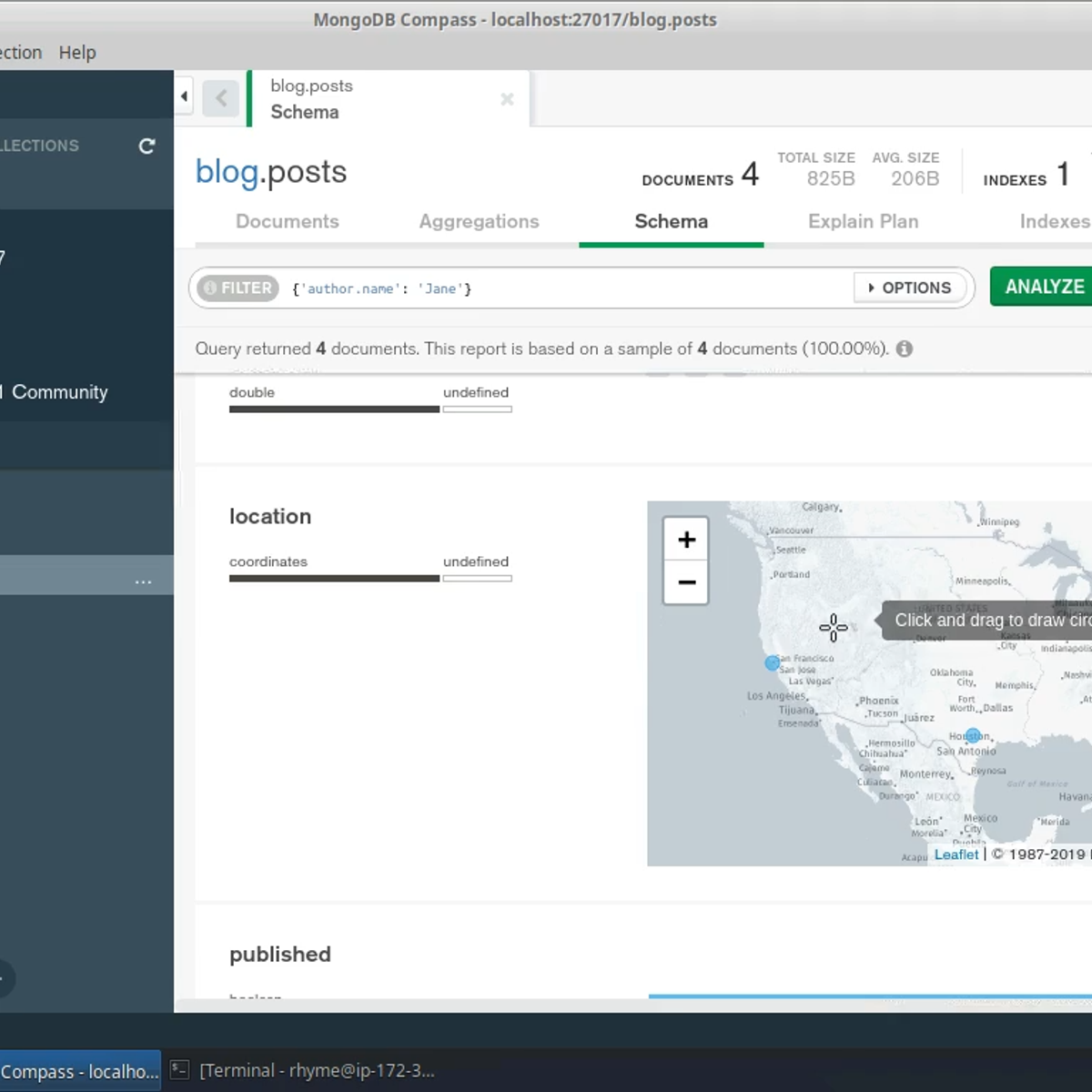
In this Guided Project you will create a MongoDB database and collection to store blog posts, and optimize it using indexes, while having an overview of some of the basic commands, in order to learn the basics of NoSQL document databases structure, the MongoDB shell and the usage of the powerful MongoDB Compass GUI to manage, inspect and optimize a MongoDB database.
Read more
In this Guided Project you will create a MongoDB database and collection to store blog posts, and optimize it using indexes, while having an overview of some of the basic commands, in order to learn the basics of NoSQL document databases structure, the MongoDB shell and the usage of the powerful MongoDB Compass GUI to manage, inspect and optimize a MongoDB database.
In this Guided Project you will create a MongoDB database and collection to store blog posts, and optimize it using indexes, while having an overview of some of the basic commands, in order to learn the basics of NoSQL document databases structure, the MongoDB shell and the usage of the powerful MongoDB Compass GUI to manage, inspect and optimize a MongoDB database.
NoSQL is an alternative to traditional relational databases. NoSQL databases sacrifice some relational databases characteristics, such as a well-defined structure and strict relations between entities, in order to achieve better and easier scaling and replication, to handle large quantities of data, while being more generally flexible, cheaper and easier to manage. Instead of using tables, rows and columns, NoSQL document databases such as MongoDB use collections, documents and fields, represented with the well known JSON format.
Note: This course works best for learners who are based in the North America region. We’re currently working on providing the same experience in other regions.
Three deals to help you save


What's inside
Syllabus
Good to know
Save this course
Reviews summary
Beginner's guide to mongodb and compass
Activities
Gather MongoDB Resources for Future Reference
Show steps
Organize and store relevant resources for easy access and future reference.
Show steps
-
Identify relevant MongoDB articles, tutorials, and documentation
-
Create a folder or repository to store these resources
-
Bookmark or save important resources for later
Work through sample MongoDB Queries
Show steps
MongoDB is a document-oriented database and has it's own unique set of query operators and syntax. Working through examples will help you get familiar with the querying style for NoSQL databases such as MongoDB.
Show steps
-
Follow along with the MongoDB tutorial on queries
-
Practice the queries in MongoDB Compass
-
Use online resources to find more MongoDB query examples
Show all two activities
Gather MongoDB Resources for Future Reference
Show steps
Organize and store relevant resources for easy access and future reference.
Show steps
- Identify relevant MongoDB articles, tutorials, and documentation
- Create a folder or repository to store these resources
- Bookmark or save important resources for later
Work through sample MongoDB Queries
Show steps
MongoDB is a document-oriented database and has it's own unique set of query operators and syntax. Working through examples will help you get familiar with the querying style for NoSQL databases such as MongoDB.
Show steps
- Follow along with the MongoDB tutorial on queries
- Practice the queries in MongoDB Compass
- Use online resources to find more MongoDB query examples
Career center
Database Manager
Data Analyst
Software Engineer
Data Scientist
Database Administrator
Information Architect
Data Engineer
IT Consultant
Systems Analyst
Technical Writer
Project Manager
IT Auditor
Security Analyst
Data Privacy Specialist
Information Security Analyst
Reading list
Share
Similar courses
OpenCourser helps millions of learners each year. People visit us to learn workspace skills, ace their exams, and nurture their curiosity.
Our extensive catalog contains over 50,000 courses and twice as many books. Browse by search, by topic, or even by career interests. We'll match you to the right resources quickly.
Find this site helpful? Tell a friend about us.
We're supported by our community of learners. When you purchase or subscribe to courses and programs or purchase books, we may earn a commission from our partners.
Your purchases help us maintain our catalog and keep our servers humming without ads.
Thank you for supporting OpenCourser.


